Data Sharing for HDP Coherence: Practical Case Studies
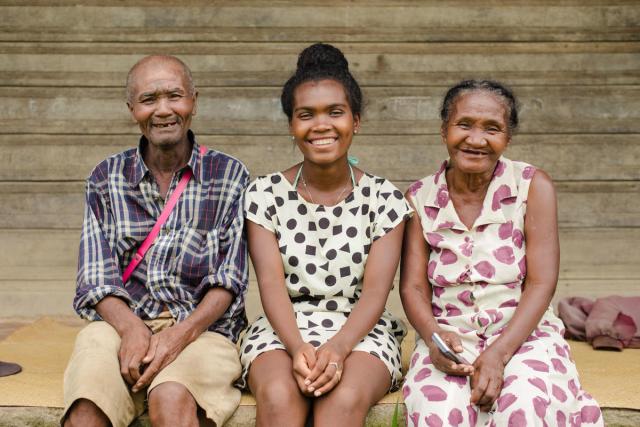
Join this event to learn more about how organizations used different types of data and approaches for data sharing, resulting in programming improvements.
Following the Knowledge Sharing Series on HDP Coherence (2022), IDEAL has documented three descriptive case studies from activities in Democratic Republic of the Congo (DRC), Ethiopia, and Madagascar, where implementing partners made a concerted effort to share data and information across HDP coherence pillars. The case studies highlight the types of data that have been useful and the practices that have facilitated data sharing.
This event will present findings from IDEAL's report which will consolidates the learnings from the three case studies.
This event will be in English with French interpretation. It is the second event in the series on HDP Coherence in Practice: Insights from the Implementing Community.
Watch Recording (Eng) Watch Recording (FR)
Participez à cet événement pour en savoir plus sur la façon dont les organisations ont utilisé différents types de données et d'approches pour le partage des données, ce qui a permis d'améliorer leur programmation.
Suite à la série de partage des connaissances sur la cohérence du HDP (2022), IDEAL a documenté trois études de cas descriptives d'activités en République démocratique du Congo (RDC), en Éthiopie et à Madagascar, où les partenaires de mise en œuvre ont fait un effort concerté pour partager des données et des informations à travers les piliers de cohérence HDP. Les études de cas mettent en évidence les types de données qui ont été utiles et les pratiques qui ont facilité le partage des données.
Cet événement présentera les conclusions du rapport d'IDEAL qui consolidera les enseignements tirés des trois études de cas.
Cet événement se déroulera en anglais avec interprétation en français.
- Panelists
-
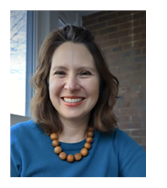 Jenny Morgan is a learning and knowledge management specialist with over 15 years of experience in international development with a focus on inclusive financial growth, women’s economic empowerment, entrepreneurship, small business development, market systems development, resilience, and food security. She holds a Masters in Public Administration from New York University and is fluent in Spanish. Jenny will be co-moderating this session.
Jenny Morgan is a learning and knowledge management specialist with over 15 years of experience in international development with a focus on inclusive financial growth, women’s economic empowerment, entrepreneurship, small business development, market systems development, resilience, and food security. She holds a Masters in Public Administration from New York University and is fluent in Spanish. Jenny will be co-moderating this session.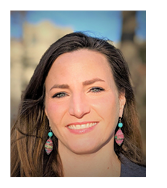 Jennifer Ferreri is a research and learning consultant with over 15 years of expertise in the international development sector. She has led research on topics including financial inclusion, entrepreneurship, women’s economic empowerment, digital financial services, and post conflict reconstruction. Jennifer has a Master of Arts degree in International Development with a focus on conflict and peacebuilding from George Washington University. Jennifer will be co-moderating this session.
Jennifer Ferreri is a research and learning consultant with over 15 years of expertise in the international development sector. She has led research on topics including financial inclusion, entrepreneurship, women’s economic empowerment, digital financial services, and post conflict reconstruction. Jennifer has a Master of Arts degree in International Development with a focus on conflict and peacebuilding from George Washington University. Jennifer will be co-moderating this session.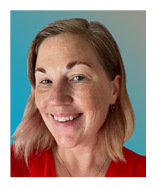 Cara Raboanarielina is the Strategic Learning Lead for the Maharo RFSA for Catholic Relief Services (CRS) in Madagascar. Cara has over 20 years of experience in technical and leadership roles helping organizations design, implement, and manage organizational learning for adaptive management to achieve the highest quality of resilience, livelihoods, and humanitarian-development programming, mostly in Sub-Saharan Africa. Cara holds a PhD in Rural Sociology and Human Dimensions of Natural Resources & the Environment from the Pennsylvania State University.
Cara Raboanarielina is the Strategic Learning Lead for the Maharo RFSA for Catholic Relief Services (CRS) in Madagascar. Cara has over 20 years of experience in technical and leadership roles helping organizations design, implement, and manage organizational learning for adaptive management to achieve the highest quality of resilience, livelihoods, and humanitarian-development programming, mostly in Sub-Saharan Africa. Cara holds a PhD in Rural Sociology and Human Dimensions of Natural Resources & the Environment from the Pennsylvania State University.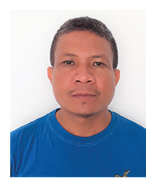 Gerard Rabesoa is the Monitoring, Evaluation, Accountability, and Learning (MEAL) Lead for the Maharo RFSA for CRS in Madagascar. He has 18 years of MEAL experience, with extensive experience in leading the design, implementation and strengthening of MEAL systems for food and nutrition security programming, monitoring quantitative and qualitative analysis, and effectively promoting evidence-based program management. Gerard holds a PhD in Environmental Economics and Policy, from the University of Antananarivo.
Gerard Rabesoa is the Monitoring, Evaluation, Accountability, and Learning (MEAL) Lead for the Maharo RFSA for CRS in Madagascar. He has 18 years of MEAL experience, with extensive experience in leading the design, implementation and strengthening of MEAL systems for food and nutrition security programming, monitoring quantitative and qualitative analysis, and effectively promoting evidence-based program management. Gerard holds a PhD in Environmental Economics and Policy, from the University of Antananarivo. Karolina Sklebena is the Crisis Analysis Team Director with Mercy Corps in the Democratic Republic of the Congo. She has over 10 years of experience working in protracted crisis and is passionate about gender and protection in humanitarian sector, as well as about evidence-based programming. In her current role, she works towards improving the analytical ecosystem in DRC to provide better, more reliable and nuanced analyses for adaptive management of HDP programs and for anticipatory action to displacement.
Karolina Sklebena is the Crisis Analysis Team Director with Mercy Corps in the Democratic Republic of the Congo. She has over 10 years of experience working in protracted crisis and is passionate about gender and protection in humanitarian sector, as well as about evidence-based programming. In her current role, she works towards improving the analytical ecosystem in DRC to provide better, more reliable and nuanced analyses for adaptive management of HDP programs and for anticipatory action to displacement.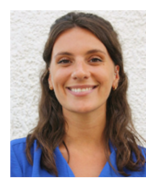 Ottavia Magenes is the New Initiatives and Partnerships Manager for Mercy Corps in Uganda, where she focuses on localization and expanding the programs portfolio. Previously, she devoted over three years to program development and complex program management in both eastern and western regions of the Democratic Republic of Congo (DRC). She is committed to fostering innovation within the humanitarian sector and advancing development programming.
Ottavia Magenes is the New Initiatives and Partnerships Manager for Mercy Corps in Uganda, where she focuses on localization and expanding the programs portfolio. Previously, she devoted over three years to program development and complex program management in both eastern and western regions of the Democratic Republic of Congo (DRC). She is committed to fostering innovation within the humanitarian sector and advancing development programming.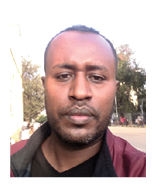 Ashenafi Alemu is a Program Manager at CRS for early warning systems and disaster risk reduction with the Joint Emergency Operation (JEOP) consortium in Ethiopia. He has 15 years of experience in designing, implementing, and overseeing both development and humanitarian initiatives. He is involved in the collection, analysis, and dissemination of humanitarian data, fostering data-driven decision-making. Ashenafi has an MA in Project Management from Addis Ababa University and an MA in Rural Development from Indira Gandhi National Open University.
Ashenafi Alemu is a Program Manager at CRS for early warning systems and disaster risk reduction with the Joint Emergency Operation (JEOP) consortium in Ethiopia. He has 15 years of experience in designing, implementing, and overseeing both development and humanitarian initiatives. He is involved in the collection, analysis, and dissemination of humanitarian data, fostering data-driven decision-making. Ashenafi has an MA in Project Management from Addis Ababa University and an MA in Rural Development from Indira Gandhi National Open University.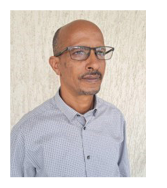 Retta Gudisa is a MEL Lead for the SPIR II RFSA with World Vision Ethiopia. He has 20 years of experience in international development and humanitarian sectors and extensive experience in the design and implementations of MEL systems and tools for development, resilience, and humanitarian programs/projects. Retta also has strong experience in research, impact evaluations, and uses of evidence for collaborative learning and adaptations.
Retta Gudisa is a MEL Lead for the SPIR II RFSA with World Vision Ethiopia. He has 20 years of experience in international development and humanitarian sectors and extensive experience in the design and implementations of MEL systems and tools for development, resilience, and humanitarian programs/projects. Retta also has strong experience in research, impact evaluations, and uses of evidence for collaborative learning and adaptations.